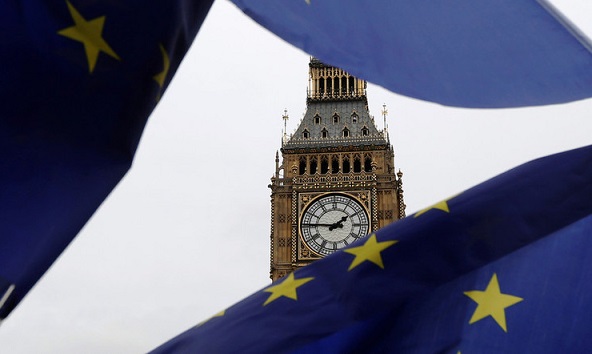BOE’s Carney warns it’s early to raise rates

Now is not the time to raise interest rates, Bank of England Governor Mark Carney said on Tuesday, warning that already weak wage growth risked a further loss of momentum as Britain prepares to leave the European Union.
In a speech to London's banking community a day after Brexit talks started, Carney dashed any prospect that he might be close to joining the three BoE policymakers who last week unexpectedly voted to raise rates from their record low of 0.25 per cent.
Delivering his delayed Mansion House speech, Mr Carney said: “Different members of the Monetary Policy Committee will understandably have different views about the outlook and therefore on the potential timing of any Bank rate increase.
“From my perspective, given the mixed signals on consumer spending and business investment, and given the still subdued domestic inflationary pressures, in particular anaemic wage growth, now is not yet the time to begin that adjustment.”
The Canadian said he would like to see if falling consumer confidence is offset by other components of demand, whether wages begin to “firm”, how the economy reacts to “tighter financial conditions”, as well as the reality of Brexit negotiations, before considering any rate hike.
On Brexit, the governor said the country will soon “begin to find out the extent to which Brexit is a gentle stroll along a smooth path to a land of cake and consumption”.
Mr Carney also waded into the row over euro-clearing after the EU released proposals which could force operators to leave London as a result of Brexit, putting the capital’s multi-billion industry at risk.
Carney said in a global economy marked by a clear divide between surplus and deficit countries, the UK’s current account was deeply in the red.
“On the positive side, the deficit is funded in domestic currency and financial reforms have increased the resilience of the UK system, thereby making larger imbalances more sustainable. But the UK’s deficit has also been associated with markedly weak investment and latterly with rapid consumer credit growth. This is not an imbalance that is, as yet, funding its eventual resolution.
“Moreover, despite the large depreciation around the referendum, the extent to which the UK’s deficit has moved closer to sustainability remains an open question, one whose answer depends crucially on the outcome of the Brexit negotiations.
“Most fundamentally, the UK relies on the kindness of strangers at a time when risks to trade, investment, and financial fragmentation have increased.”
He also said that whether Britain's large current account deficit was sustainable remained an open question, "one whose answer depends crucially on the outcome of the Brexit negotiations".

